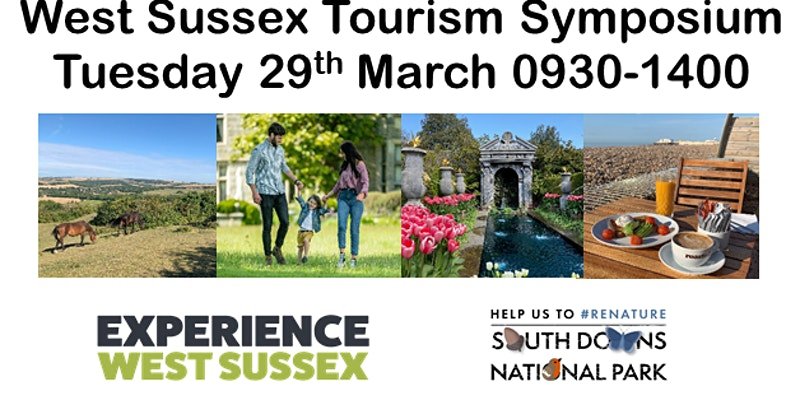On 15th March we hosted another Ideas Exchange event in collaboration with Always Possible. We brought leaders from the tourism and hospitality sector together to discuss collaboration to help the sector thrive at the stunning Arundel Castle.
Adam Bates from Blue Sail Consultancy set the scene with some interesting research and statistics. The tourism industry in Sussex brings 62m visitors a year to the county, delivers £5bn to the economy and supports 72,000 FTE jobs…which is the same as the whole of Iceland!
Interestingly, only 11% of those 62m visitors stay overnight but they represent 50% of the spend. Only 2% of those visitors come from overseas, and they deliver 20% of the revenue. So the focus was clear – we need to bring in more overseas visitors and encourage them to stay at some of Sussex’s wonderful accommodation providers.
Adam challenged the group to consider what makes Sussex distinct. It has a great and varied tourism offer, from impressive heritage and cultural attractions, stunning gardens and landscapes, but what makes us stand out against competing destinations around the country?
One of the key challenges for our county is that it is made up of several tourism organisations and therefore has a rather fragmented structure. Blue Sail had surveyed 1,200 Sussex visitors and 600 non-visitors. When they asked the non-visitors about whether they’d heard of Sussex, 65% of them only recalled certain places when asked specifically about the towns and cities in the county. This proved that there is better recall of individual places in the county, rather than of Sussex as a whole…meaning we need a stronger collaborative voice.
Adam presented the example of Ireland which simplified its tourism voice from 32 counties into four with Ireland’s Ancient East, Dublin, the Wild Atlantic Way and later Ireland’s Hidden Heartlands.
Whilst our tourism and visitor economy is faced with some extreme challenges (we’re still in a pandemic and there’s a war in Europe, as well as recruitment crisis… to name a few), there are some opportunities for the sector to focus on.
There are six key trends:
- Sustainability – 76% of people are influenced by businesses which act responsibly.
- Multigenerational travel – what have you got to entertain everyone from kids to grandparents?
- Wellness – people more than ever want to get away from it all – what have you got to help people switch off and relax?
- Maximising behaviour – tourists are more likely to cram as much as possible into one trip – what can you offer which combines multiple experiences into one day? Are there local businesses you can collaborate with?
- Aging population – boomers are maturing and have money to spend – how can you target this generation?
- Experiential – the trend to pursue real and authentic experiences and support local communities. How can you weave this into your communications and marketing efforts?
The staycation boom of 2021 is likely to continue, especially now the war in the Ukraine is raging which will likely sadly impact on consumer confidence when it comes to overseas travel. It might also mean that the UK’s inbound visitors are impacted so we need to maximise the opportunity for domestic travel in 2022 and beyond while keeping our doors open for international visitors.
The other big trend likely to continue in a post-Covid world is the increase in outdoor adventure – we’ve all seen the paddle boarders flocking to the sea – and Coastal West Sussex has plenty of water sports opportunities for visitors. Click here for more information on our ‘All on Board’ project.
The sector also needs to offer packages for every budget, from affordable to luxury as some have been heavily impacted by Covid and need a cheaper option while others haven’t spent what they normally would and have more available!
It almost goes without saying, but customer expectations when it comes to new technology are very high. Therefore, consider your customer journey and how you can offer technological advances to make your booking system as easy to use (and find) as possible.
One of Adam’s key pieces of advice was to consider your target audience – who loves you the most and how can you attract them? The great destinations of the world stand out from the crowd, have a targeted approach, connect emotionally with their audience and deliver the promises they make.
Avoid saying you’ve got ‘something for everyone’ as your budget will be too thinly spread trying to attract a mass audience – you’ll have a much more efficient use of resources by targeting a specific demographic. Adam gave four examples:
- Country lovers
- Free & easy mini breakers
- Explorers (international)
- Buzzseekers (younger international visitors)
The group then broke into discussion groups to consider how to grow the sector together. These were some of the ideas put forward:
- Regional marketing: a movement towards a pan-Sussex approach for a collaborative tourism structure. Jo Williams of Experience West Sussex commented that this is already happening in the background.
- Target a demographic that could amplify to others: ex-grad 30-somethings with children could invite grandparents to join them and those children could visit later in life.
- Collaborate with local suppliers: for example, Wakehurst is inviting local food stalls and musicians for evening events at the venue.
- Package up: what local accommodation providers, attractions, restaurants etc can work together to cross-promote? Be careful with selling as a package though as you’ll be bound by the EU Package Travel Directive.
- Work with universities: there was a great example of Visit Kent working with the university and visiting China to promote Kent to the international students and their families – how can we promote West Sussex via the international students at the University of Chichester and Chichester College Group? The Coastal West Sussex Partnership is going to take this idea away and discuss it with its management group (which, helpfully, includes the university).
- Share data: we need a centralised place to enter visitor data and information and share knowledge, data and best practice when it comes to environmental impact/innovations.
One of the best ways to help promote the whole county is to join the Experience West Sussex campaign – the central voice for tourism in the region. Contact the team today to see how you can get involved.
The next event in the tourism calendar for the region is the West Sussex Tourism Symposium on 29 March. See you there!

